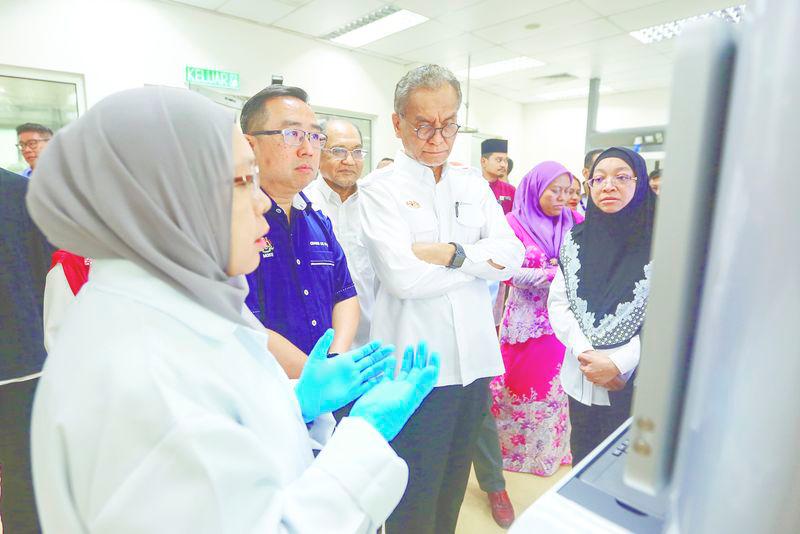BANGI: Malaysia aims to kick off the first phase of its Diagnosis-Related Group (DRG) hospital payment system this year, starting with less complex diseases, said Health Minister Datuk Seri Dr Dzulkefly Ahmad.
Speaking at the Malaysia Genome and Vaccine Institute (MGVI), where the MyGenom national precision medicine initiative was also launched, Dzulkefly described the DRG model as a major shake-up in hospital funding and healthcare delivery.
“We’re moving towards a uniquely Malaysian DRG model – not a carbon copy of the version used in the US or anywhere else.
“We’ll build our own grouper – a classification system tailored to our population needs, disease trends and economic context,” he said.
Already adopted in many countries, the DRG system groups patients by diagnosis and treatment, streamlining payments and boosting hospital efficiency.
Dzulkefly said the Health Ministry is in discussions with the Finance Ministry, Bank Negara Malaysia, private healthcare providers, insurers, IT firms and other key players to craft a workable model.
“We’re running five intensive sessions involving Health Ministry, Finance Ministry, Bank Negara, the private sector, health insurers and tech partners. It’s a massive, system-wide effort,” he said.
The rollout will begin with low-complexity diseases – dubbed “international transNational diseases” – before scaling up to more challenging conditions.
“This phased approach lets us launch early, even before the entire system is in place. Start simple, learn fast, then scale,” he added.
Serious talks on DRG began in March 2024, and the ministry is now racing to launch by year-end, spurred by growing momentum for healthcare reform.
“This DRG model must be co-developed by policymakers, clinicians, economists and both public and private sector stakeholders.”
The system is expected to drive greater transparency in billing, promote smarter use of resources and ease pressure on public hospitals – key goals under the Madani government reform agenda.
“This is a structural shift. DRG moves us towards a smarter, fairer and more sustainable healthcare model,” Dzulkefly said.
His comments came alongside an update on the MyGenom project, another ambitious step towards transforming healthcare through genomics and personalised medicine.









